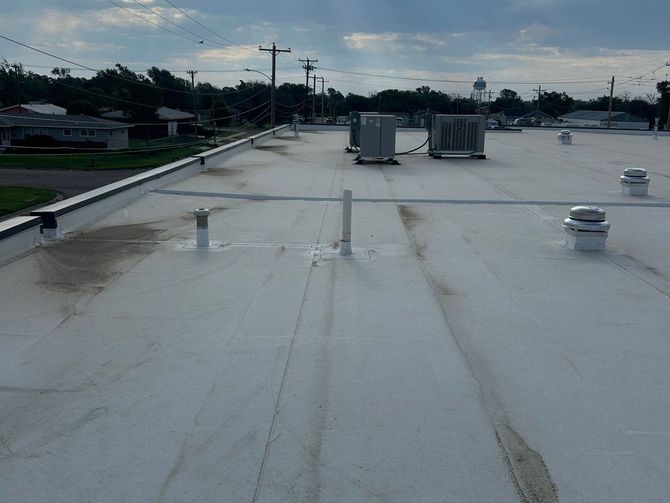For any commercial property, the roof is essential. It not only shields your building from the elements but can also help lower repair expenses and boost energy efficiency. In this guide, we’ll delve into the best commercial roofing materials and explain why investing in quality roofing is key to ensuring the success of your property.
Understanding Your Commercial Roofing Needs
When it comes to commercial roofing, different factors influence your decision-making process. Climate, the structure of your building, and your business operations all impact the type of roofing you should choose. Understanding these requirements ensures you make the right choice for your business, whether it's a warehouse, office building, or retail store.
Top Commercial Roofing Materials
Several roofing materials are commonly used in commercial buildings. The best choice depends on your specific needs and budget. Each material offers distinct advantages, ensuring the right option for your business.
1. Metal Roofing
Metal roofing is highly favored for commercial properties because of its long-lasting durability and energy-saving features. Available in materials such as steel or aluminum, metal roofs can handle extreme weather and provide excellent leak protection. Plus, their reflective surface can reduce cooling costs during the hotter months.
2. Flat Roofs
Flat roofs are often found on commercial properties due to their cost-effectiveness and ease of installation. These roofs are ideal for buildings with modern architectural designs. Materials like TPO, EPDM, or PVC are commonly used for flat roofing systems, offering great waterproofing and insulation properties. Regular maintenance and proper drainage are key to extending the life of a flat roof.
Shingle Roofs for Commercial Properties
Shingle roofing, though less common for large commercial buildings, is often used for smaller properties or those aiming for a more traditional appearance. Asphalt shingles are an economical option, easy to install, and come in a variety of designs, though they may not last as long as metal or flat roofing systems.
Roof Installation Process and Maintenance Tips
Once the roofing material is chosen, it’s time for installation. Hiring a qualified and licensed contractor guarantees proper installation, which is vital for preventing leaks and ensuring your roof’s longevity.
Regular maintenance is also essential. Inspections should be done at least twice a year, especially after harsh weather events. Look for signs of damage, such as missing shingles, cracks, or pooling water. Cleaning gutters and removing debris can also prevent long-term damage and extend the life of your commercial roof.

The Importance of Investing in High-Quality Roofing
A good-quality roof is a sound investment. It offers protection from leaks that can cause expensive damage to your building and inventory. It also boosts energy efficiency, making your property more sustainable and lowering costs. A well-maintained roof can even increase your building's value and prevent costly repairs in the future.
Final Thoughts: Selecting the Best Commercial Roofer
Choosing the right roofing contractor is just as important as selecting the best materials. Look for a licensed, experienced roofer who understands commercial properties and can help you select the best solution based on your business needs. A great contractor will also guide you through the installation and maintenance process to keep your roof in top shape for years to come.
Looking to replace your commercial roof? Contact us for a free consultation, and we’ll help you choose the perfect roofing solution for your needs!
#CommercialRoofing #RoofingMaterials #BusinessProtection #MetalRoofing #FlatRoofing #RoofInstallation #EnergyEfficiency #RoofMaintenance